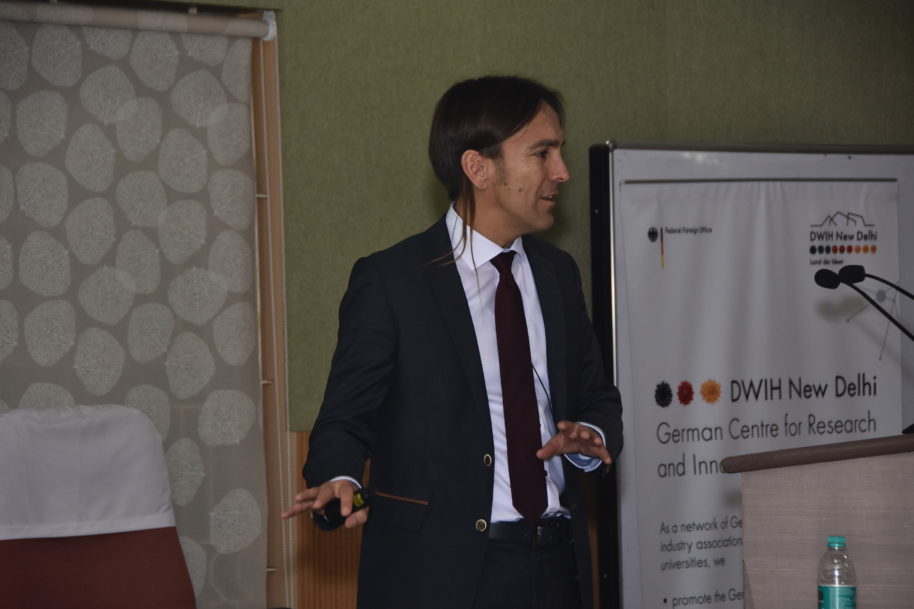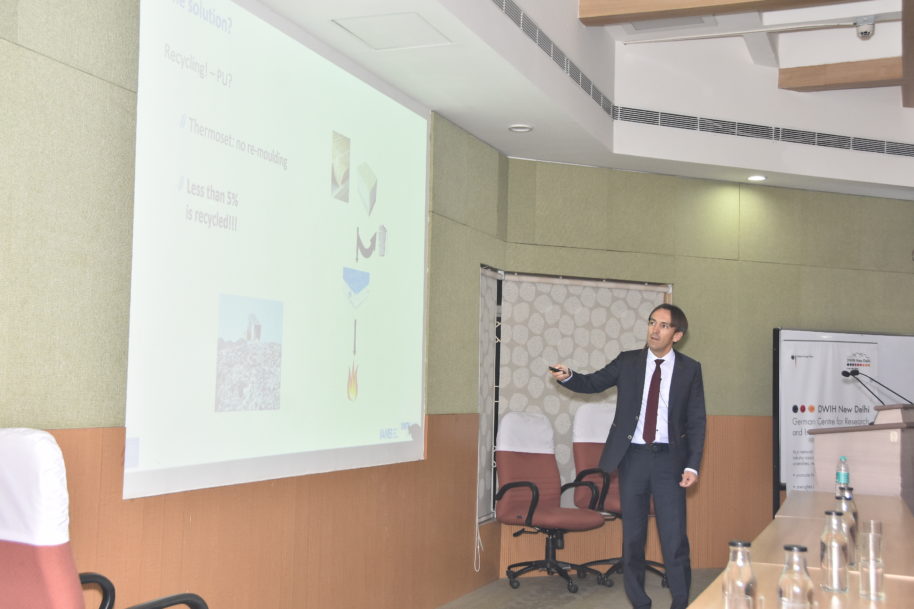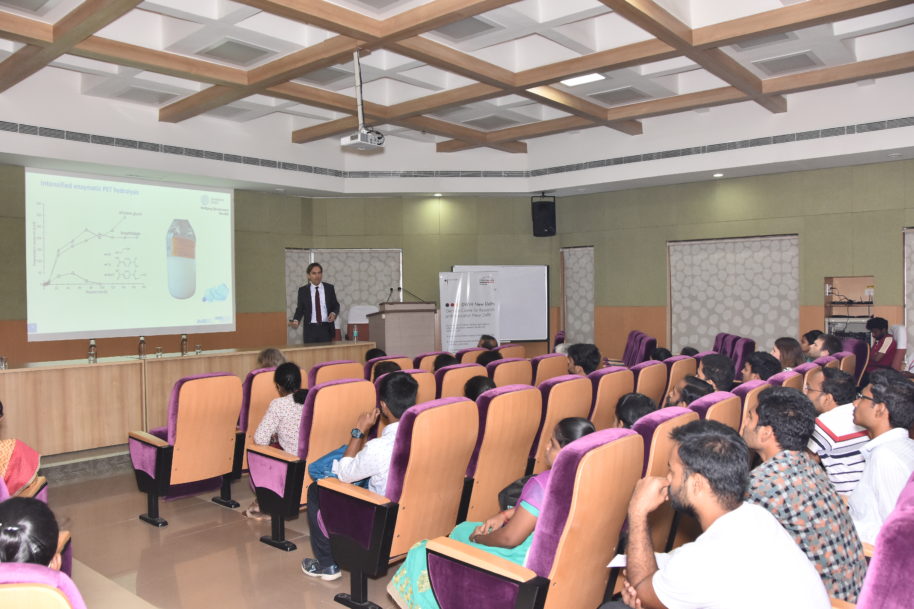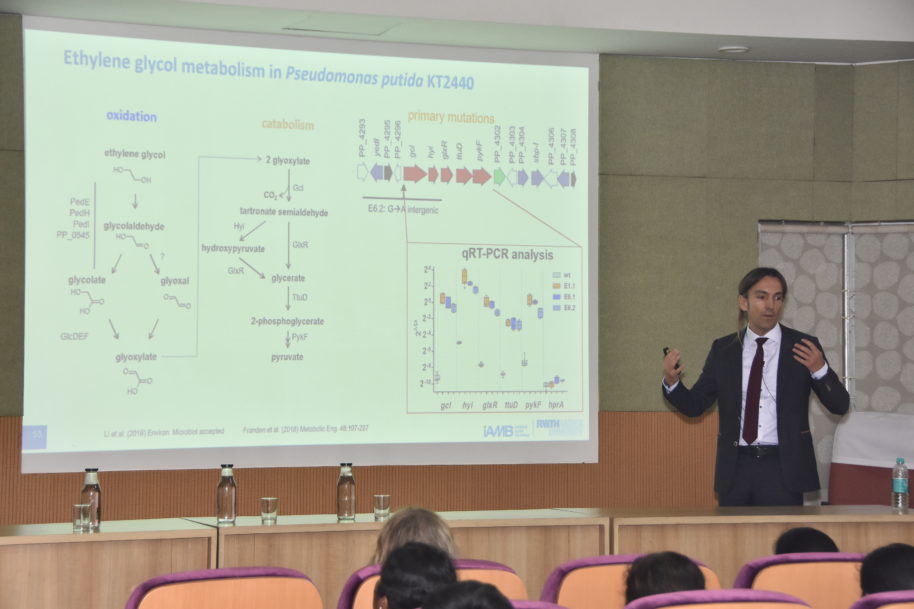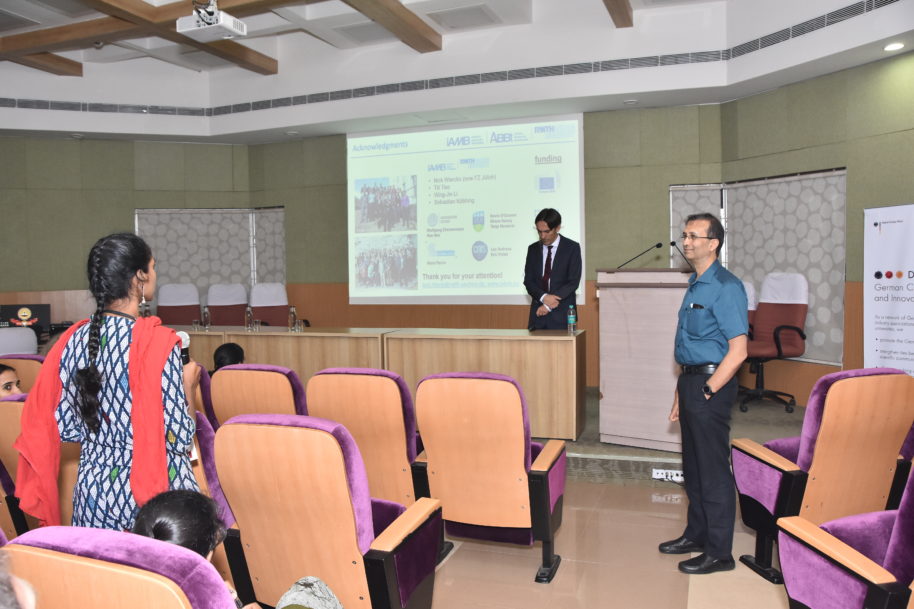Science Circle Lecture: From Plastic Waste to Plastic Value using Pseudomonas putida
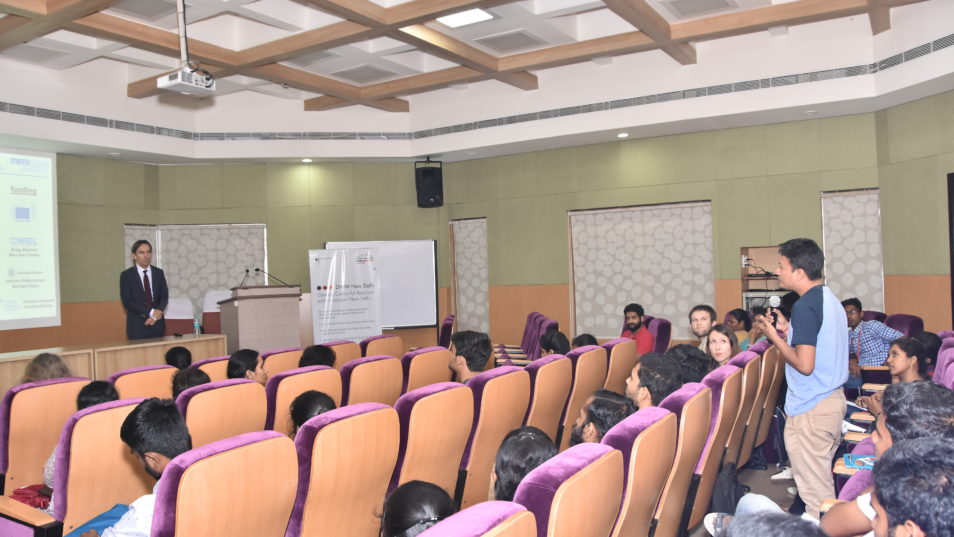 © DWIH New Delhi
© DWIH New Delhi
The DWIH New Delhi, along with RWTH Aachen University and IIT Madras, organised a Science Circle Lecture on the topic: From Plastic Waste to Plastic Value using Pseudomonas putida, on 29th January 2020.
Venue: Hall III, IC &SR Building, IIT Madras, Chennai
Event Information
January 29, 2020, 3:30 PM to 5:30 PM
Chennai
Organizer(s): DWIH New Delhi, RWTH Aachen University, IIT Madras
Selected Photos
Abstract
Two hundred and seventy five million tons of plastic waste were produced in 2010 alone (Jambeck et al., 2015), with Europe accounting for about 55 million tons/year. The environmental impact of these primarily fossil-based plastics has been broadly discussed. While the vast majority of these polymers are not biodegradable, their strength and light weight provide comparative advantages. Poly(ethylene terephthalate) (PET), for instance, has contributed significantly to reducing energy expenditure during transport, especially in the beverage industry. Due to its thermoplastic nature PET is also easy to recycle. However, recycled PET is of lower quality and current recycled PET products struggle to compete with virgin PET on price and quality, leading to an overall European recycling rate of less than 30%. Polyurethanes (PU), are used extensively in a wide range of applications including construction, transportation, furniture, and medicine. Since many PU types have a thermoset nature with covalent bonds, one of the main concerns for this product is the notable lack of end-of-life recycling (<5%). Hence, new ideas that give room for new incentives are required for the recycling of plastics.
A strategy will be proposed here that allows upcycling of plastic waste, by feeding degraded plastic as carbon source to microbial plastic producers 1. The enzymatic degradation of PET and the possibilities to produce valuable products from the resulting monomers will be presented. In more detail, the use of ethylenglycol and terephthalate by Pseudomonas putida as energy and carbon sources will be discussed following two strategies:
- by de novo engineering and
2. by reverse engineering of the respective pathways following leads from adaptive laboratory evolution experiments.
The use of ethyleneglycol as energy or as energy and carbon source is presented as well. Products are derived from de novo lipid synthesis including PHA and secreted OH-fatty acid derivatives. Finally, the potential contributions to a more sustainable plastic industry will be discussed.
- Wierckx N., A. Prieto, P. Pomposiello, V. de Lorenzo, K. O’Connor, and L. M. Blank, Plastic waste as a novel substrate for industrial biotechnology, Microbial Biotechnology, 2015, 8: 900–903
Speaker
Prof. Dr. Lars M. Blank
Head, Institute of Applied Microbiology
RWTH Aachen University
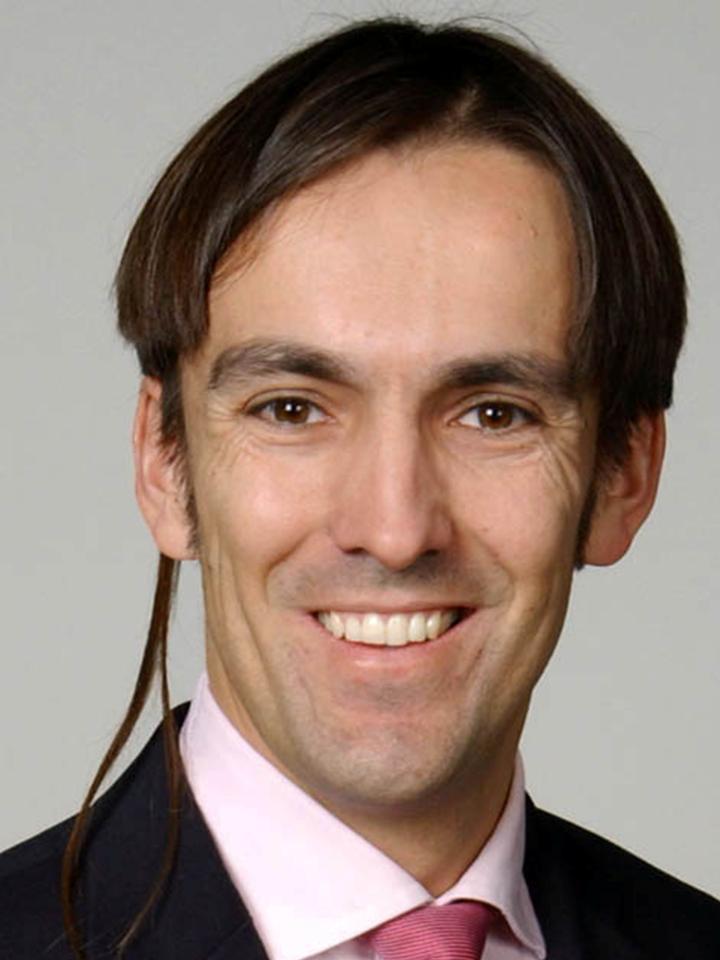
Lars M. Blank studied Chemical Engineering at the University of Dortmund and then Biology from at the Ruhr-University of Bochum, in Germany. During his Ph.D. at the University of Queensland, Australia, he developed a continuous process for hyaluronic acid production using lactic acid bacteria and worked as a visiting scientist at the Technical University of Denmark (DtU), reprogramming Lactococcus lactis from a purely anaerobe to a partially respiratory organism. As a postdoctoral fellow of the Deutsche Akademie der Naturforscher Leopoldina, he established flux analysis as an additional tool for yeast Systems Biology at the ETH Zurich, Switzerland.
From November 2004 until June 2011 Lars M. Blank led the group Systems Biotechnology at the Laboratory of Chemical Biotechnology of Prof. Andreas Schmid at the TU Dortmund and was a senior research fellow at the Leibniz-Institut für Analytische Wissenschaften – ISAS – e.V. in Dortmund. On the 1st of July 2011 he became professor and head of the Institute of Applied Microbiology at the RWTH Aachen, Germany.
Lars M. Blank focuses in his research on fundamental and applied aspects of microbial metabolism. Of specific interest is the interaction between the metabolic network and the introduced genetic and environmental perturbations. His teaching focus lies in the integration of biological concepts with the tools from bioinformatics and engineering. He is also the Associate Editor of Engineering in Life Sciences, Journal of Bioscience and Bioengineering, and Metabolic Engineering, among others.
Tentative Programme
| Time (hrs) | Programme |
| 15.30 – 16.00 | Registration and Networking Tea |
| 16.00 – 16.15 | Inaugural Address
|
| 16.15 – 17.15 | Science Circle Lecture: From Plastic Waste to Plastic Value using Pseudomonas putida by Prof Dr Lars M Blank, Head of Institute of Applied Microbiology, RWTH Aachen University |
| 17.15- 17.30 | QnA Session |
| 17.30 | End of the Lecture |
Further Information
You can find a list of research projects of the Blank Lab at RWTH Aachen University here.

